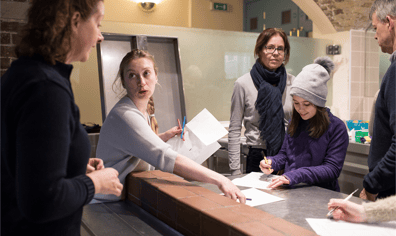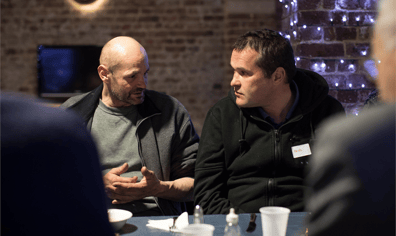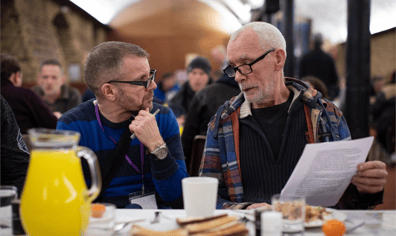About us
Who we are
ABOUT GLASS DOOR
What we do
Based in London, Glass Door coordinates the UK’s largest network of open-access services for people affected by homelessness. Since 1999, thousands of people have found safe shelter and the support needed to leave homelessness behind, thanks to the dedication of thousands of volunteers and partnerships formed with churches and drop-in centres. Our night shelters save lives and our support services help change lives.
How we do it
Our services are open to all. We are one of the few emergency night shelters that has an open access policy, meaning guests do not need a referral from another agency. We believe everyone has inherent dignity and is worthy of a safe place to sleep. We operate on a first-come, first-served basis.
We are an independent charity that receives no funding that would impede our open access policy. It is thanks to the support and partnership of individuals, churches, community groups, businesses and trusts and foundations that we can continue to provide shelter and support to those who need it most.
Our impact
- 1,465 individuals received support across Glass Door’s services in 2021-2022.
- In partnership with five drop-in centres, a team of caseworkers work year-round to help get people back into independence. Despite the many challenges associated with the economy during the pandemic, at least 45 guests found work in 2021-2022. 263 of our guests moved into housing in 2021-2022.
- In the winter of 2021/2022, a total of 103 individuals found a safe place to stay in our hostel in Central London. On average 84% of guests felt more optimistic about the future since staying in this new Glass Door Covid-secure single-room accommodation project.
- Behind each statistic are hundreds of individuals we call our guests, each with a unique story. This past winter, at least 82 of those we supported were refugees or asylum seekers. At least 22 were fleeing domestic violence, and 10 were victims of modern slavery. Guests experiencing multiple challenges such as a relationship breakdown, past trauma, alcohol dependency and debt found help to address these issues and become more stable and self-sufficient.




